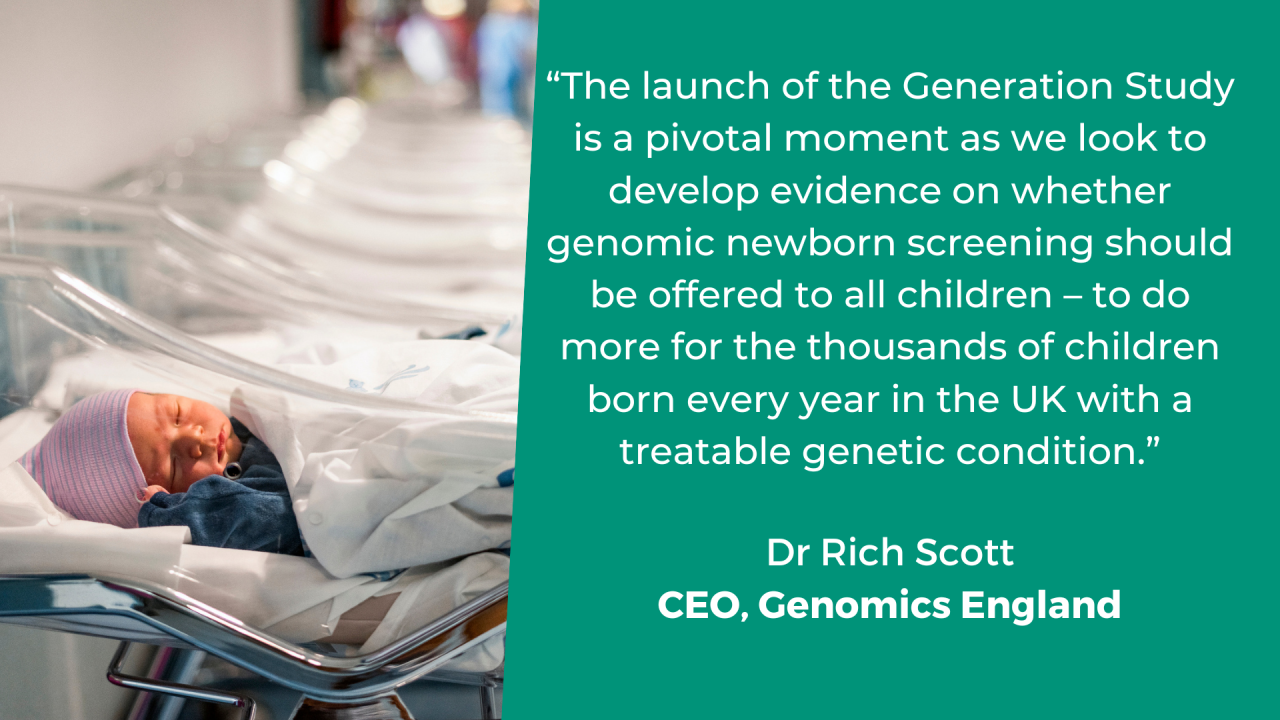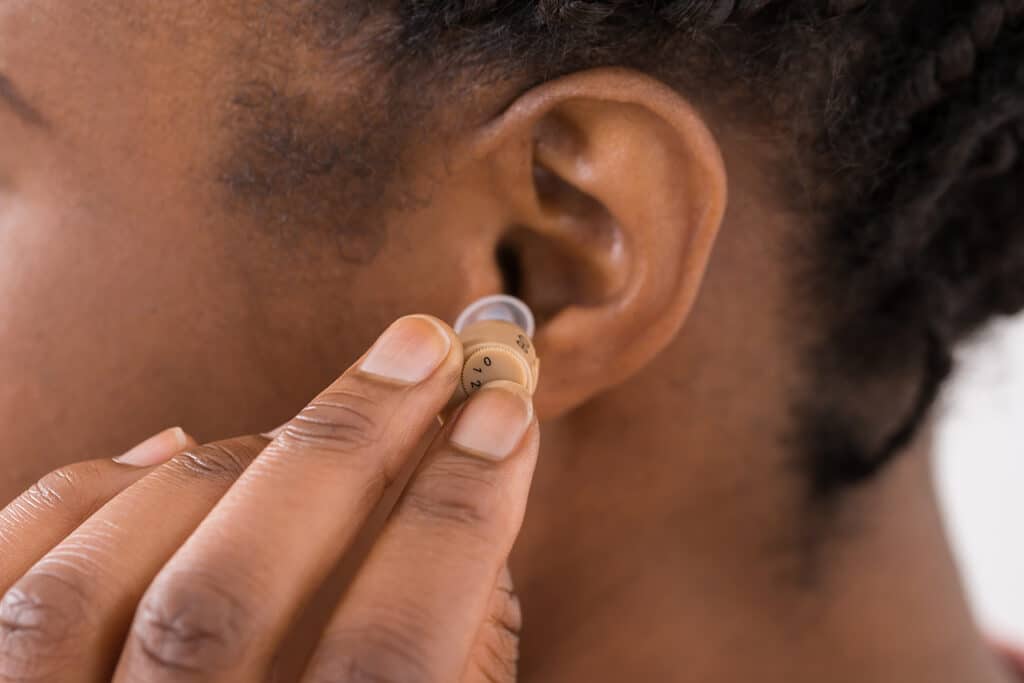
In a groundbreaking development, hundreds of newborns have started being tested for over 200 rare genetic conditions as part of a pioneering study launched at Leeds Teaching Hospitals NHS Trust.
This innovative study, known as the Generation Study, is spearheaded by Genomics England in collaboration with NHS England.
The primary goal of the Generation Study is to detect conditions such as Metachromatic leukodystrophy (MLD) in infants at an earlier stage. Early diagnosis and treatment can significantly slow disease progression, potentially improving and extending the lives of hundreds of children.
The study involves offering whole genome sequencing to newborns using blood samples typically collected from their umbilical cord shortly after birth. This sequencing process allows for the identification of treatable, rare conditions immediately after birth, rather than waiting for symptoms to appear later in childhood. Early detection means that families can access essential support, monitoring, and treatment from the NHS much sooner.
Principal Investigator for the Generation Study and Consultant Obstetrician at Leeds Teaching Hospitals, Mr Nigel Simpson, said:
“The Generation study is incredibly exciting for the future care of babies and offers a fantastic opportunity now for families to access free testing. I would urge anyone who is pregnant to take a look at the Generation website and register their interest. Our research midwives are always happy to answer any questions and support expectant mothers to join the study.”
The Generation Study aims to identify more than 200 conditions in babies who show no symptoms at birth. Early intervention can help prevent long-term health issues associated with certain conditions, reducing hospital visits and promoting healthier lives for children.
Expectant parents are informed about the study during pregnancy. If interested, they have a detailed conversation with a research midwife to decide whether they want to participate. After birth, an NHS doctor or midwife confirms with parents that they still consent to the testing, and a blood sample is taken for whole genome sequencing.
Results from the genome sequencing are reviewed by NHS genomic scientists. Parents are informed within 28 days if a condition is suspected, or within a few months if no conditions are found. If a treatable condition is identified, families receive further NHS testing to confirm the diagnosis and ongoing support and treatment from the NHS.
While traditional NHS blood spot screening (the heel prick test) detects nine rare but serious health conditions, the Generation Study is designed to complement, not replace, routine screening. Screening a baby’s entire genome has the potential to detect hundreds more rare, treatable diseases in their early years.

Dr Rich Scott, Genomics England’s Chief Executive Officer, also commented:
“The launch of the Generation Study is a pivotal moment as we look to develop evidence on whether genomic newborn screening should be offered to all children – to do more for the thousands of children born every year in the UK with a treatable genetic condition.
“Children with these conditions often go years without receiving a diagnosis. Cutting this time would mean earlier access to what can be life-changing treatment. The Generation Study also shows the impact of our partnership with the NHS – meaning that the UK is uniquely placed to test, and – where proven – roll out genomic innovations to improve health and help us move healthcare increasingly to preventing illness.”
The study will contribute to broader healthcare research, improving testing and discovering new treatments. It also explores the possibility of storing an individual’s genome over their lifetime to predict, diagnose, and treat future illnesses. For instance, if a child whose genome has been sequenced falls ill later in life, their stored genetic information could aid in diagnosis and treatment.
The Generation Study was developed following extensive consultation with the public, parents, families affected by rare conditions, healthcare professionals, policymakers, and scientists. By identifying rare genetic conditions early, this study represents a significant step forward in improving the health and wellbeing of future generations.
Image credit: iStock
link






